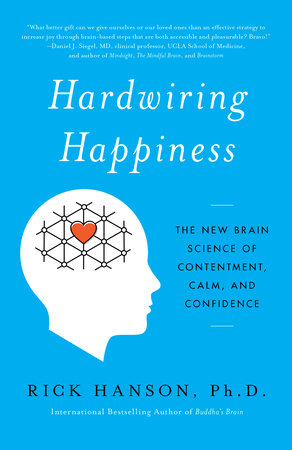Some of the health risks of inhaling fine and ultrafine particles are well-established, such as asthma, lung cancer, and, most recently, heart disease. But a growing body of evidence suggests that exposure can also harm the brain, accelerating cognitive aging, and may even increase risk of Alzheimer’s disease and other forms of dementia.
YOU MIGHT ALSO LIKE
CLEAR ALL
BY TOPIC
BY TEACHER
BY TYPE
FILTER

TOPIC
- Compassion Fatigue (24)
- Brain Health (19)
- Cancer (16)
- Living with Illness (16)
- Emotional and Mental Health (14)
- Memory (13)
- Neuroplasticity (12)
- Chronic Health Conditions (11)
- Autoimmune Disease (10)
- Mind-Body Connection (10)
- Stress (10)
- Trauma (10)
- Science and Spirituality (9)
- Diet and Nutrition (8)
- Athlete Well-Being (7)
- Child’s Emotional Growth (7)
- Cognition (7)
- Depression (7)
- Offering Support to Others (7)
- Resilience (7)
- Romantic Relationships (7)
- Self-Care (7)
- Well-Being (7)
- Altered States (6)
- Anxiety (6)
- Child’s Trauma (6)
- Meditation (6)
- Parenting (6)
- Polyvagal Theory (6)
- Psychedelic Research (6)
- Aging (5)
- Buddhism (5)
- Chronic Pain (5)
- Consciousness (5)
- Emotional Intelligence (EQ) (5)
- Empathy (5)
- Family Dynamics (5)
- Grief (5)
- Habit Formation (5)
- Happiness (5)
- Love (5)
- Memoir (5)
- Mindfulness (5)
- Physical Health (5)
- Self-Healing (5)
- Sleep (5)
- Trauma Healing (5)
- Addiction (4)
- Honoring Emotion (4)
- Imagination and Creativity (4)
- Neurodiversity (4)
- Neuropsychology (4)
- Psilocybin (4)
- Psychology (4)
- Religious Experience (4)
- Self-Discovery (4)
- Sex (4)
- The Feldenkrais Method (4)
- Willpower (4)
- Asking for Help (3)
- Autism (3)
- Compassion (3)
- Death and Dying (3)
- Death or Loss of a Parent (3)
- Decision Making (3)
- Dysfunctional Childhood (3)
- Exercise (3)
- Intimacy (3)
- Joy (3)
- Marriage (3)
- Mindfulness Meditation (3)
- PTSD (3)
- Relationship Challenges (3)
- Transcendent Experience (3)
- Anger Management (2)
- Astral Projection (2)
- Biohacking (2)
- Child’s Anxiety (2)
- Child’s Challenging Behavior (2)
- Chronic Anxiety (2)
- Chronic Fatigue (2)
- Clinical Depression (2)
- Connection (2)
- Death or Loss of a Loved One (2)
- Digital Life (2)
- Disconnection (2)
- Drug Addiction (2)
- Embodiment (2)
- Endurance (2)
- Epigenetics (2)
- Finding Meaning (2)
- Generosity (2)
- Habits of Mind (2)
- Hope (2)
- Human Potential (2)
- Identity (2)
- Insomnia (2)
- Integrative Medicine (2)
- Kindness (2)
- Loss of Partner/Spouse (2)
- LSD (2)
- Mental Health Challenges (2)
- Perception (2)
- Psychedelic-Assisted Therapy (2)
- Self-Compassion (2)
- Sleep Disorders (2)
- Spiritual Healing (2)
- Stress Management (2)
- Suffering (2)
- Synesthesia (2)
- Visions and Hallucinations (2)
- Yoga (2)
- Addiction Recovery (1)
- AIDS (1)
- Alcohol Addiction (1)
- Anger (1)
- Anorexia (1)
- Aromatherapy (1)
- Art Therapy (1)
- Attachment Theory (1)
- Awareness (1)
- Belonging (1)
- Binge Eating (1)
- Biofeedback (1)
- Bulimia (1)
- Burnout (1)
- Cannabis/CBD (1)
- Challenges with Teens (1)
- Changes in Libido (1)
- Children’s Well-Being (1)
- Cognitive Psychology (1)
- Communication Skills (1)
- Death or Loss of a Sibling (1)
- Divorce and Breakup (1)
- Dreamwork (1)
- Eating Disorders (1)
- Ego (1)
- Emotional Labor (1)
- Facing Own Death (1)
- Fatherhood (1)
- Fatigue (1)
- Fear (1)
- Fellowship and Community (1)
- Foster Parenting (1)
- Friendship (1)
- Gender Identity (1)
- Global Challenges (1)
- Grace (1)
- Grit (1)
- Growth Mindset (1)
- Guilt (1)
- Healing Approaches (1)
- Healthy Eating (1)
- Holism (1)
- Hospice (1)
- Infidelity (1)
- Inflammation (1)
- Inner Life (1)
- Inner Peace (1)
- Inner Strengths (1)
- Intention (1)
- Kids and Sports (1)
- Learning Styles (1)
- Letting Go (1)
- Light Therapy (1)
- Massage (1)
- MDMA (1)
- Mindfulness Practices (1)
- Negative Self-Talk (1)
- Nightmares (1)
- Oneness (1)
- Past Lives and Reincarnation (1)
- Peak Performance (1)
- Play (1)
- Presence (1)
- Problem Solving (1)
- Psychological Approaches (1)
- Rolfing (1)
- Self-Actualization (1)
- Self-Pressure (1)
- Self-Realization (1)
- Self-Reflection Practices (1)
- Setting Limits and Boundaries (1)
- Social Media Addiction (1)
- Somatic Experiencing (1)
- Spiritual Development (1)
- Superfoods (1)
- Telepathy (1)
- Tibetan Buddhism (1)
- Time Management (1)
- Transformation (1)
- Trauma-Informed Therapy (1)
- Unfulfilled Career (1)
- Wholeness (1)
- Young Adult Well-Being (1)
- Zen Meditation (1)
FILTER

TEACHER
- David Perlmutter (4)
- Lisa Feldman Barrett (4)
- Richard Davidson (4)
- Annie Hopper (3)
- Robin Carhart-Harris (3)
- Diane Ackerman (2)
- Eckhart Tolle (2)
- Gabor Maté (2)
- Oliver Sacks (2)
- Anat Baniel (1)
- Andrew Solomon (1)
- Anna Lembke (1)
- Dacher Keltner (1)
- Daniel Amen (1)
- Daniel Goleman (1)
- David Eagleman (1)
- David Spiegel (1)
- Dilip Jeste (1)
- Elizabeth Lesser (1)
- Erin Clabough (1)
- Howard Gardner (1)
- Jane Roberts (1)
- Jean Shinoda Bolen (1)
- Jeffrey Mishlove (1)
- Joe Dispenza (1)
- Judson Brewer (1)
- Ken Wilber (1)
- Kenneth Pelletier (1)
- Lisa Wimberger (1)
- Lissa Rankin (1)
- Matthieu Ricard (1)
- Michio Kaku (1)
- Nikki Mirghafori (1)
- Ondrea Levine (1)
- Peter A. Levine (1)
- Roland Griffiths (1)
- Ruby Wax (1)
- Sanjay Gupta (1)
- Stan Tatkin (1)
- Stephen Levine (1)
- Sylvia Boorstein (1)
- The Dalai Lama (1)
- Thomas Moore (1)
- Toni Bernhard (1)





